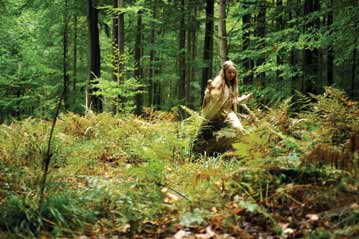A child of a wealthy German family, Hildegard is handed over to a Benedictine Monastery from the age of 8. Taught in the arts of herbal medicine, reading and writing by her mentor Jutta, she quickly excels in all. When Jutta dies, Hildegard is horrified by evidence of self-flagellation on her body and vows to change the ways of the order.
Hildegard becomes the abbess of the convent and by subtly using her intelligence and diplomacy begins to change the laws from the highest level. Since childhood she has had powerful visions that she records. Certain these mystic perceptions are messages from God, she mentions them to her superior, without fear of the obvious scepticism and suspicion of heresy from the Christian order. The Pope grants her his support and allows her to publish the written accounts of her revelations. With this, Hildegard’s life takes a new turn. Allowed to build her own convent, she invents a revolutionary and humanist approach to devotion.
Composer, scientist, doctor, writer, poet, mystic, philosopher, politician, ecological activist… A woman ahead of her time. Hildegard’s musical, literary and philosophical works are still loved today and her influence in holistic medicine is growing. The first composer whose life we know about, she was also the first woman to write about female sexuality. Centuries later, masters such as Dante and Leonardo di Vinci were inspired by her works. Hildegard of Bingen was one the most important inspirational and visionary female leaders of the Medieval age, responsible for bringing Europe out of the darkness and into the modern era of science and enlightenment.


